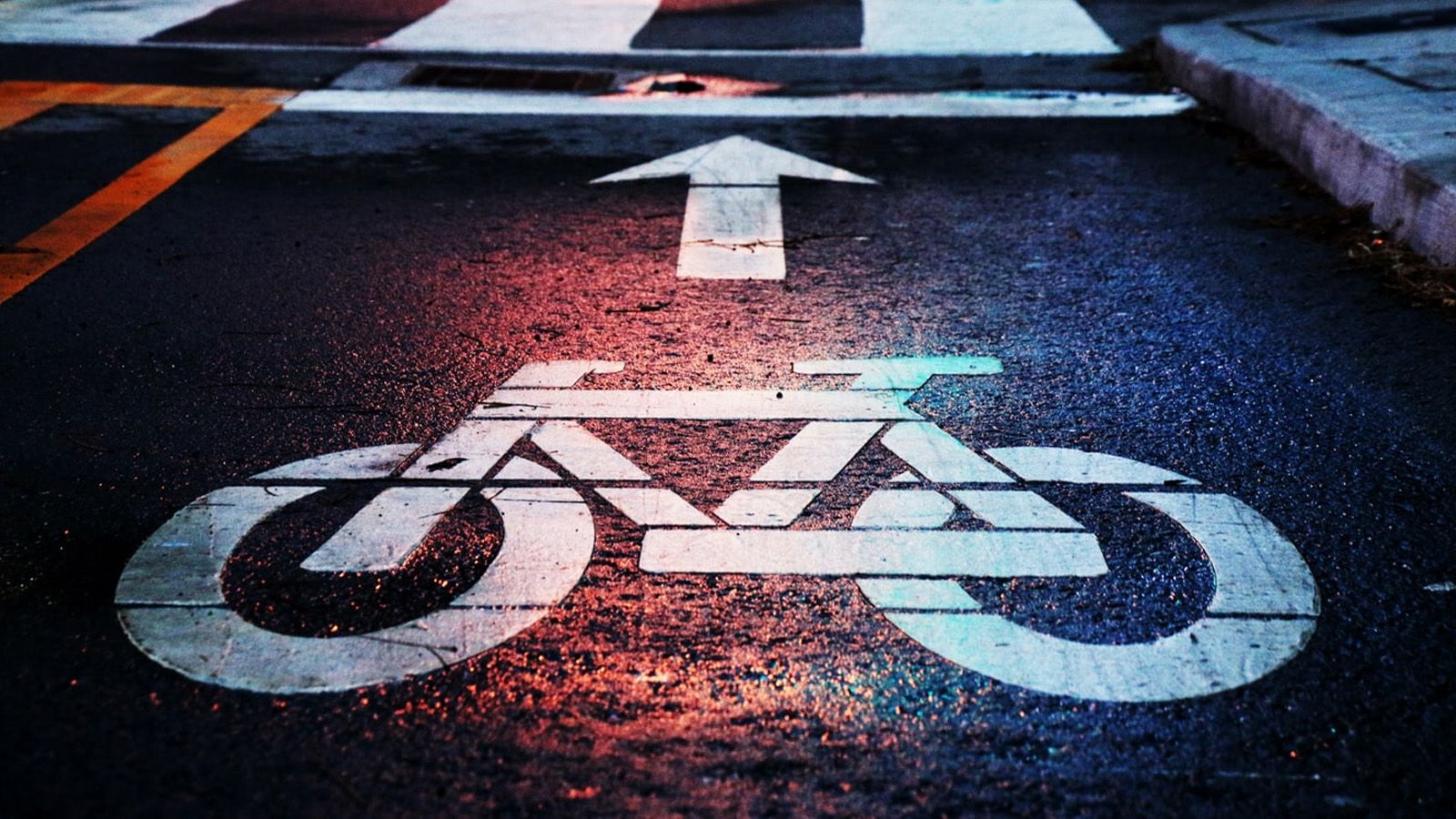New research conducted by Hunter College students and their professors provides a snapshot of New York City’s growing bicycle culture and the risks cyclists face due to obstructions.
The new study, “Bike Lanes or Blocked Lanes: An Observational Study of Obstructions of New York City’s Bike Lanes,” directed by Hunter Sociology Professors Peter Tuckel and Kate Pok-Carabalona, quantifies the different types of obstructions found in bike lanes throughout New York City, except Staten Island.
Several important findings emerged in this study. First, obstructions in bike lanes in New York City are a frequent occurrence, with an average of 7.5 obstructions per 10 city blocks or approximately 11.5 obstructions per mile. The two leading types of obstructions were pedestrians and motorized vehicles. Overall, there were approximately 3 pedestrian and 3 vehicular obstructions per 10-block range. The third most frequent type of obstruction was construction. The number of impediments due to construction was .66 per 10-block range, or about 1 per mile.
“This last statistic is a particularly troubling one,” said Professor Tuckel. “While pedestrian and most vehicular obstructions were transitory in nature, construction sites, by definition, are more enduring and are a major disruption and danger to cyclists.”
The study examines two types of bike lanes. Conventional bike lanes are those that have a bicycle logo painted on them at various intervals and have solid painted lines on both sides delineating their boundaries. Protected bike lanes are demarcated by either wide buffered areas or physical barriers separating them from vehicular traffic. Omitted from the study are “Shared Lanes,” in which motorized vehicles and bikes occupy the same street space, and “Signed Routes,” which simply designate a suggested route for cyclists. The study also excludes bike lanes straddling bridges.
“As would be expected, motorized vehicular obstructions were less common in protected than conventional bike lanes. Nevertheless, cyclists riding in protected bike lanes still confront an array of obstacles,” said Tuckel.
Somewhat surprisingly, the average number of obstructions of all types in protected bike lanes exceeded the number in conventional bike lanes (8.5 vs. 6.8). According to Professor Pok-Carabalona, the data show that the number of pedestrian obstructions in protected bike lanes greatly outpaces the corresponding number in conventional bike lanes, and other obstructions also figured more prominently in protected bike lanes than in conventional bike lanes.
“We found that while pedestrians walking in or crossing into the bike lanes constituted the most numerous obstacles, other obstructions—such as people walking their dogs or riding scooters, and cyclists going against the flow of traffic or in the wrong designated direction of the bike lane—were much greater in the protected lanes than the conventional bike lanes,” said Pok-Carabalona. “The numbers show that obstructions in bike lanes are ubiquitous and pose a significant safety hazard to cyclists, not to mention to those committing the obstructions. If bike lanes, and particularly protected bike lanes, are for providing cyclists a safe environment in which to ride, then solutions need to be found to eliminate the myriad number of obstacles that impede cyclists riding in these lanes.”
In addition, the study found, as expected, that the average number of obstructions in Manhattan per 10-block street range was greater than the average number in the other three studied boroughs (8.1 vs. 6.8). There was also a higher incidence of obstructions in weekday peak hours than in weekday off-peak hours (8.5 vs. 5.8).
The study authors also found that protected bike lanes are more popular than conventional bike lanes by a margin of 4.5 to 1. These numbers were consistent no matter the borough, the day of the week, or the time of day. While these numbers could be due to protected bike lanes straddling arterial roads and conventional bike lanes running alongside less major routes, members of the New York City cycling community have repeatedly voiced their preference for protected bike lanes. This finding also accords with previous research showing a decided preference for protected bike lanes by cyclists.
The study also measured the number of cyclists against the days of the week and times of day. The average number of cyclists counted per 15-minute interval riding on Saturday or Sunday slightly exceeded the number counted during peak weekday hours (23 vs. 21), underscoring cycling’s importance as a healthy form of recreation—and not just an environmentally friendly alternative means of transportation.
The observational study was carried out by Hunter College students enrolled in one of three different courses in the fall semester of 2019. Two were undergraduate-level courses offered in the Department of Sociology (two sections of Introduction to Research Methods). The third was a graduate-level course also offered in the Department of Sociology (Intermediate Statistics).
“For more than 20 years, Professor Tuckel has provided students with research skills that can be used in the workplace and created new knowledge that improves life in New York City,” said Jennifer J. Raab, President of Hunter College. “As 2020—our 150th anniversary—approaches, we look forward to celebrating Hunter’s legacy of scholarship and community service, as well as our vital place at the center of New York’s academic and cultural life.”
Each student or pair of students was assigned a bike lane from which they selected a 10-block street range. The students visited these 10-block street ranges on two separate occasions. They were instructed to visit their sites during one “peak time” and one “off-peak time.” Peak times included weekdays either from 7:00 am to 9:30 am or from 4:30 pm to 6:30 pm. Off-peak times consisted of weekdays between 9:31 am and 4:29 pm or between 7:00 am and 6:30 pm on Saturday or Sunday. All observations were carried out between September 20 and October 27, 2019.


